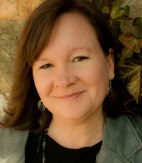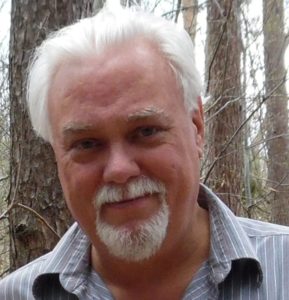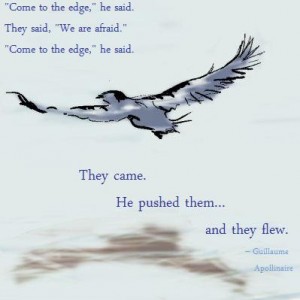Today, I have the pleasure of welcoming author Angela Scott, award-winning author of WANTED: DEAD OR UNDEAD, DESERT RICE, and SURVIVOR ROUNDUP, for a guest post I think you’ll find interesting. This is part of a blog hop running at Evolved Publishing this week, in which you can not only discover new authors, but win some cool prizes, too.
How do you balance your religious beliefs but stay true to the story you need to write?
I’m not a religious fanatic, but I do have a moral compass and “rules” for myself that I try my best to live by. But here’s the thing…I belong to a religious affiliation who have even more rules that I should be living by, and the kinds of stories I find myself writing tend to break a lot of those rules. I’m a good person, but my characters make a lot of mistakes–some pretty big ones. These are the stories that come to me, the voices that whisper in my ear. Personally, I think I would be HORRIBLE at writing religious fiction type books, so knowing that, I don’t even try.
So why does any of this matter? I guess because I worry someone might mistake my stories as my own personal belief system. What I write about rarely matches up to what I believe to be true. Do I believe kids should be having sex at fifteen-years-old? Heck no. Do I believe it’s okay for kids to drink? Never. The list goes on.
Desert Rice
deals with some pretty tough topics. I don’t go into details, but there is enough there for a reader to paint their own sordid picture. This is a book that I know might offend several people of my church. I guess, even after all this time, I still worry about what people think of me. Sad, I know.
So then why write the stories I do? Why write about zombies or child abuse? Why not just stick to my moral compass and do the right thing? Because rarely do I pick the story or its characters–they come to me. That sounds crazy, but it’s true. So I write what I write, and I will let the chips fall where they may. I don’t think what I write about pushes any major envelopes–there are MANY books out there with topics and word choices I would NEVER do–but to be a member of a religion that preaches building up the kingdom God, I’m pretty sure my books aren’t doing any of that.
Take Stephanie Meyer for instance (I know, I know. We really don’t want to talk about her, right?) but her fourth book got some members of her religious group in an uproar. They didn’t agree with what she wrote. They attacked her and questioned her standing in her church. Besides her writing not being up to par, she didn’t write anything completely offensive or downright evil, but she suffered some backlash for it, regardless.
So how can I be who I am, believe what I do, but write books that contradict some of those beliefs? Am I a hypocrite? Maybe. I don’t know. There are certain lines I have drawn, certain “things” and word choices I would never use, but I have made some “creative choices” (for lack of a better term) that some in my religious community would say is wrong–I should be sticking to my standards, so they would say.
What do I do? How do I walk that fine line? How do I explain myself…or not?
What do you think? How do you balance it? Do you draw lines in the sand or do you write the story that needs to be written…no matter what? I’d love to know.
Click HERE to learn more about Angela Scott.
About DESERT RICE: Samantha Jean Haggert is a beautiful twelve-year-old girl, but no one knows it. All they see is an awkward boy in a baseball cap and baggy pants. Sam’s not thrilled with the idea of hiding her identity, but it’s all part of her brother’s plan to keep Sam safe from male attention and hidden from the law. 15-year-old Jacob will stop at nothing to protect his sister, including concealing the death of the one person who should have protected them in the first place–their mother.
Sam and Jacob try to outrun their past by stealing the family car and traveling from West Virginia to Arizona, but the adult world proves mighty difficult to navigate, especially for two kids on their own. Trusting adults has never been an option; no adult has ever given them a good reason. But when Sam meets “Jesus”–who smells an awful lot like a horse–in the park, life takes a different turn. He saved her once, and may be willing to save Sam and her brother again, if only they admit what took place that fateful day in West Virginia. The problem? Sam doesn’t remember, and Jacob isn’t talking.
~~~~~







Hi,
This does sound like a really good read. Thank you for this giveaway.
Jenn
DESERT RICE looks like such a fascinating story.
Write from your heart & you can’t go wrong.
I have an underlying morality to my stories. Some of my stuff is very Christian in content, other works are not. But they are just as important. After all, He said go out and tell the world, and we can’t do that by writing stuff that only the saved are likely to read. Sometimes, you have to get your hands dirty to help other souls to a point where they may be cleaned.
I know exactly what you mean, Angela. I’m often told that my characters are “different” (and sometimes in a bad way) than the others out there, but they come to me fully formed, and I couldn’t deny their identities now, could I? Loved the post. Love you!
Em 😀
I try not to be overt about religious implications in my stories, but religion, at least at the deep, personal level–morality, philosophy, values–often flows underneath the story, like an extra layer in the foundation.
I prefer it that way, so as not to antagonize or insult anyone with whom I may disagree. For me, there are two “third rails” in this business–religion and politics. I’m happy to approach those as subtle thematic elements, but I don’t want my stories to be “about” that.
~~~~~~~~~~
BTW, I’m so pleased to host this post by Angela because DESERT RICE is one of my personal favorites, of all the books I’ve edited for Evolved Publishing. Seriously, folks, you want to read this book.
Exactly!
I won’t write religious books (Me? Ha,ha,ha) but there may be elements of it in the story OR the story may be void of it all together. It just depends on the story itself. Then I will cross my fingers and hope those closest to me understand that it is only a story and not a true reflection of my actual beliefs. So far, so good 🙂
Thanks for hosting me, Lane!
Wow, what a great post! I am in a similar situation myself, where I do have religious affiliations but my books do not really reflect that. To me, my writing is separate from my religious beliefs. The world is not a pretty place, everyone makes mistakes (including religious people), so why should I write about an ideal world? It just isn’t real.
My book isn’t even released yet and I already get the impression people from my church think they’re getting religious fiction. Oh well, I’ll guess they’ll figure it out sooner or later.
Thanks for the awesome post 🙂
So far, the feedback I’ve received from several members of my church has been very kind. I’ve had a couple of women, overly religious, wonderful women, come up to me and tell me they bought Desert Rice and loved it. After picking my chin up off the floor, I thanked them and felt a huge weight lift from my shoulders. AND… I’m not getting excommunicated, so that’s great news 🙂
I can’t write religious fiction. It’s not me. I just write what the voices tell me to and hope, that despite the characters and plot not being “ideal”, that the overlying message will come through–we can face hard things and survive them.
I’d been nervous about the reactions of those closest to me in my church, and found I didn’t need to worry as much as I first thought. I will write the story. I will be true to the story. BUT…there are some bounds I refuse to cross.
Best of luck to you and thanks for stopping by.